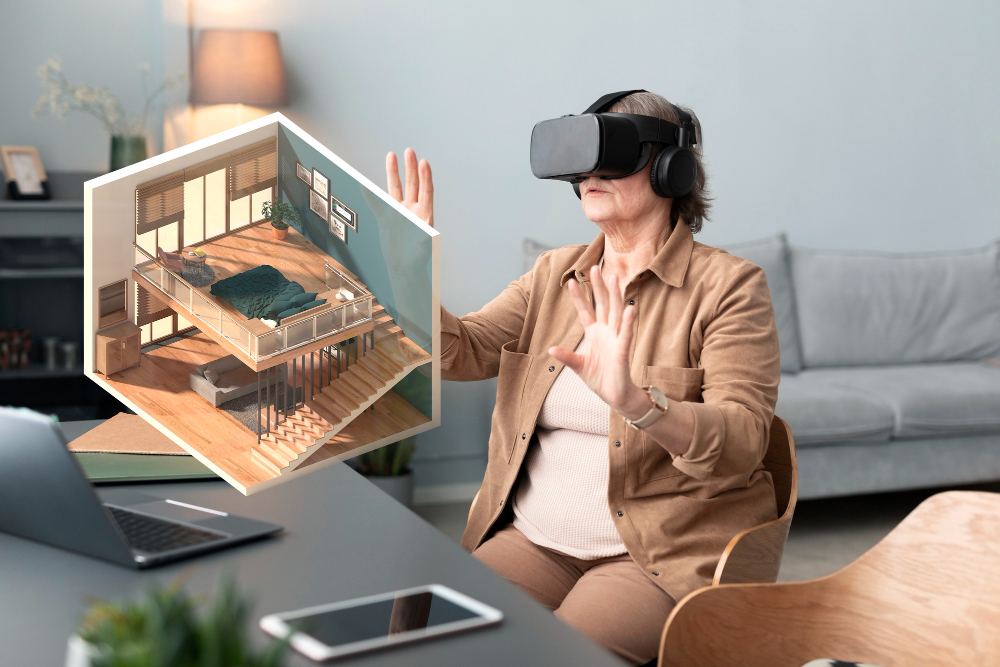6 Cutting-Edge Technologies Redefining Real Estate
Technology intersects with every aspect of our lives, and the real estate industry is transforming remarkably. Emerging technologies are enhancing how we buy, sell, or invest in properties and fundamentally changing the real estate market landscape. Let’s explore the six technologies at the forefront of this revolution, which is reshaping the real estate world one innovation at a time.
6 Cutting-Edge Technologies Redefining Real Estate
5G and Enhanced Connectivity
The rollout of 5G technology promises to significantly impact the real estate industry by enhancing connectivity speeds and enabling a new wave of technological innovation. 5G’s high-speed, low-latency connections are essential for effectively implementing VR, AR, IoT, and other technologies that rely on real-time data transmission.
For real estate professionals, 5G technology means offering more immersive virtual tours, conducting smoother and more efficient transactions, and managing properties more effectively through IoT devices. For investors, enhanced connectivity opens up new markets and investment opportunities, as 5G can make remote areas more accessible and attractive for development. 5G technology is set to enhance the appeal of intelligent buildings and communities, where connectivity is a critical component of their value proposition. As 5G becomes more widespread, we expect increased demand for properties offering cutting-edge technological capabilities, further driving innovation in the real estate sector.
Virtual Reality (VR) and Augmented Reality (AR)
Virtual and Augmented Reality are redefining how we view and interact with properties. These technologies allow potential buyers to tour homes and commercial spaces from anywhere in the world, offering a 360-degree immersive experience beyond traditional photographs or video tours. VR and AR are particularly valuable for viewing properties under construction or visualizing existing space changes. For investors and developers, this means the ability to showcase properties in their best light, regardless of their current physical condition, significantly widening the pool of potential buyers.
Moreover, VR and AR are substantially impacting virtual real estate wholesaling. By enabling investors to inspect properties virtually, these technologies are streamlining the investment process and opening up new opportunities in markets previously constrained by geographical limitations. This innovation saves time and resources and democratizes access to real estate investments, making it easier for anyone to start building their portfolio.
Blockchain and Smart Contracts
Blockchain technology, best known for its role in cryptocurrencies, is making waves in real estate by introducing smart contracts. These self-executing contracts, with the terms of the agreement directly written into lines of code, can automate and secure real estate transactions, reducing the need for intermediaries and minimizing the risk of fraud. Blockchain ensures transparency, as every transaction is recorded in a way that cannot be altered or deleted, providing a level of security and trust that was previously unattainable.
This technology is especially relevant when considering the buy-and-hold strategy in real estate, as it streamlines the acquisition and management of properties. Investors can securely and efficiently manage leases, payments, and property records, making the long-term holding of assets more manageable and less susceptible to human error or legal complications. Blockchain’s impact extends beyond simplifying transactions, potentially revolutionizing property management and investment strategies.
Internet of Things (IoT)
The Internet of Things (IoT) revolutionizes real estate management and investment by connecting physical properties to the Internet through smart devices. This interconnectivity allows for real-time monitoring and control over various aspects of property management, from energy consumption to security systems. IoT technology enables property owners to optimize operations, reduce costs, and improve tenant satisfaction by offering a more responsive and personalized service.
In the investment context, the data collected through IoT devices provide valuable insights into property usage, maintenance needs, and potential improvements. This information can significantly enhance the decision-making process for property investments, ensuring that funds are allocated to areas with the highest return on investment. Additionally, the efficiency and convenience offered by IoT technologies are making properties more attractive to potential buyers and tenants, increasing their market value. IoT’s role extends to wholesaling in Texas, Florida, and other states, attracting potential buyers’ interest. By offering detailed information about the property’s condition and usage, IoT devices can provide wholesalers with a competitive edge, ensuring that they can accurately represent the value of their properties to interested parties.
Integrating emerging technologies into the real estate sector creates a landscape ripe with opportunities for innovation, investment, and growth. These technologies are transforming how properties are bought, sold, and managed, enhancing the overall experience for all stakeholders involved. As we move forward, it’s clear that embracing these technological advancements will be vital to staying competitive and thriving in the ever-evolving real estate market.


















